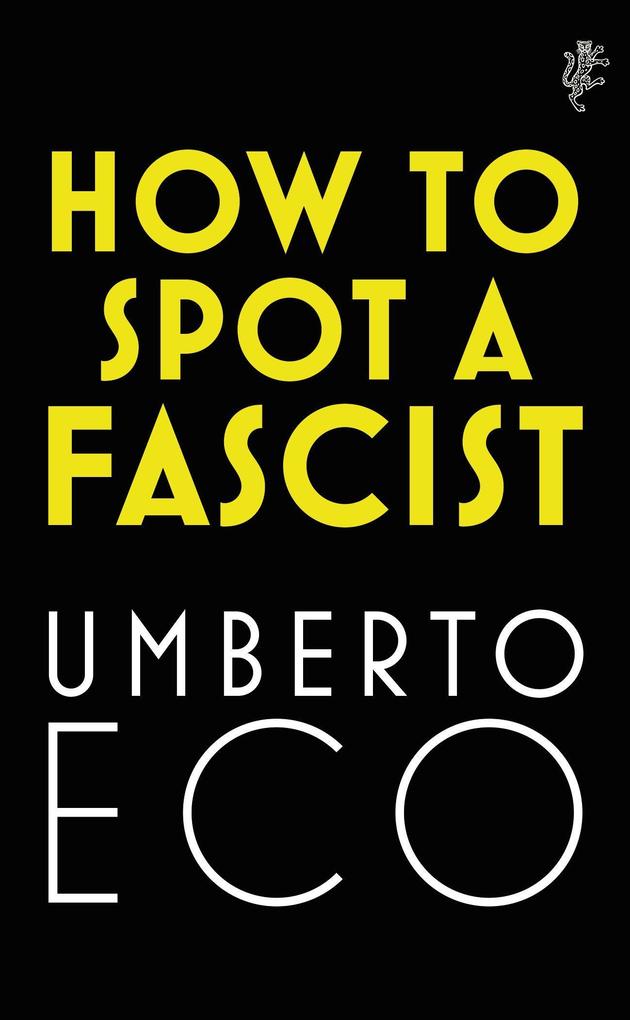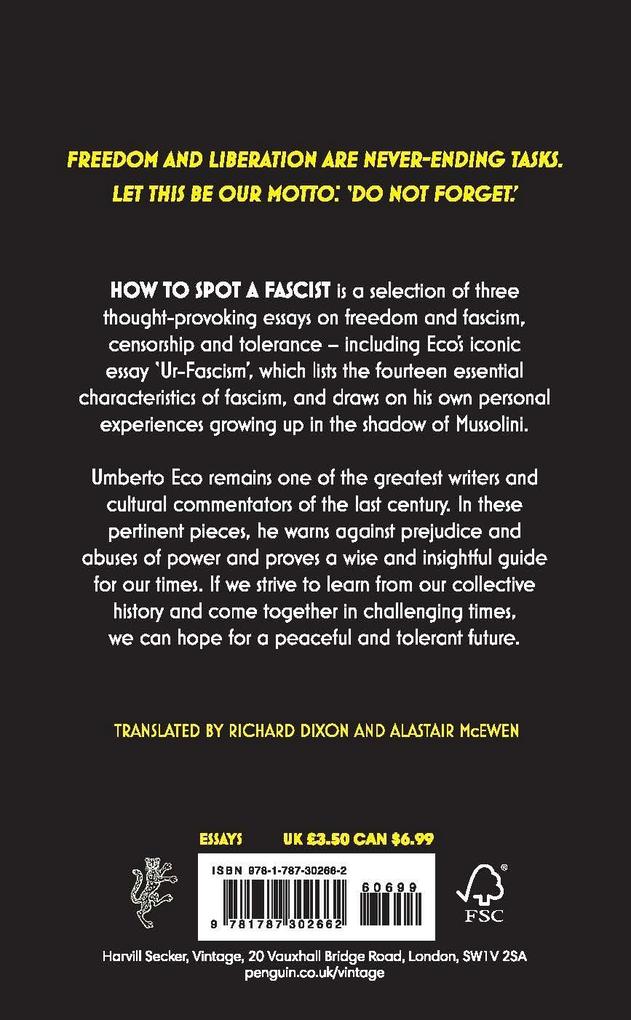
Zustellung: Mi, 23.04. - Fr, 25.04.
Sofort lieferbar
VersandkostenfreiBestellen & in Filiale abholen:
We are here to remember what happened and to declare solemnly that 'they' must never do it again. But who are 'they'?
HOW TO SPOT A FASCIST is a selection of three thought-provoking essays on freedom and fascism, censorship and tolerance - including Eco's iconic essay 'Ur-Fascism', which lists the fourteen essential characteristics of fascism, and draws on his own personal experiences growing up in the shadow of Mussolini.
Umberto Eco remains one of the greatest writers and cultural commentators of the last century. In these pertinent pieces, he warns against prejudice and abuses of power and proves a wise and insightful guide for our times.
If we strive to learn from our collective history and come together in challenging times, we can hope for a peaceful and tolerant future.
Freedom and liberation are never-ending tasks. Let this be our motto: 'Do not forget.'
'He brilliantly exposes all that is absurd and paradoxical in contemporary behaviour. Eco's irony is disarming, his cleverness dazzling' Guardian
Produktdetails
Erscheinungsdatum
13. August 2020
Sprache
englisch
Seitenanzahl
51
Autor/Autorin
Umberto Eco
Übersetzung
Alastair McEwen, Richard Dixon
Verlag/Hersteller
Originaltitel
Originalsprache
italienisch
Produktart
kartoniert
Gewicht
46 g
Größe (L/B/H)
172/106/9 mm
Sonstiges
A-format paperback
ISBN
9781787302662
Entdecken Sie mehr
Pressestimmen
He brilliantly exposes all that is absurd and paradoxical in contemporary behaviour. Eco's irony is disarming, his cleverness dazzling Guardian










